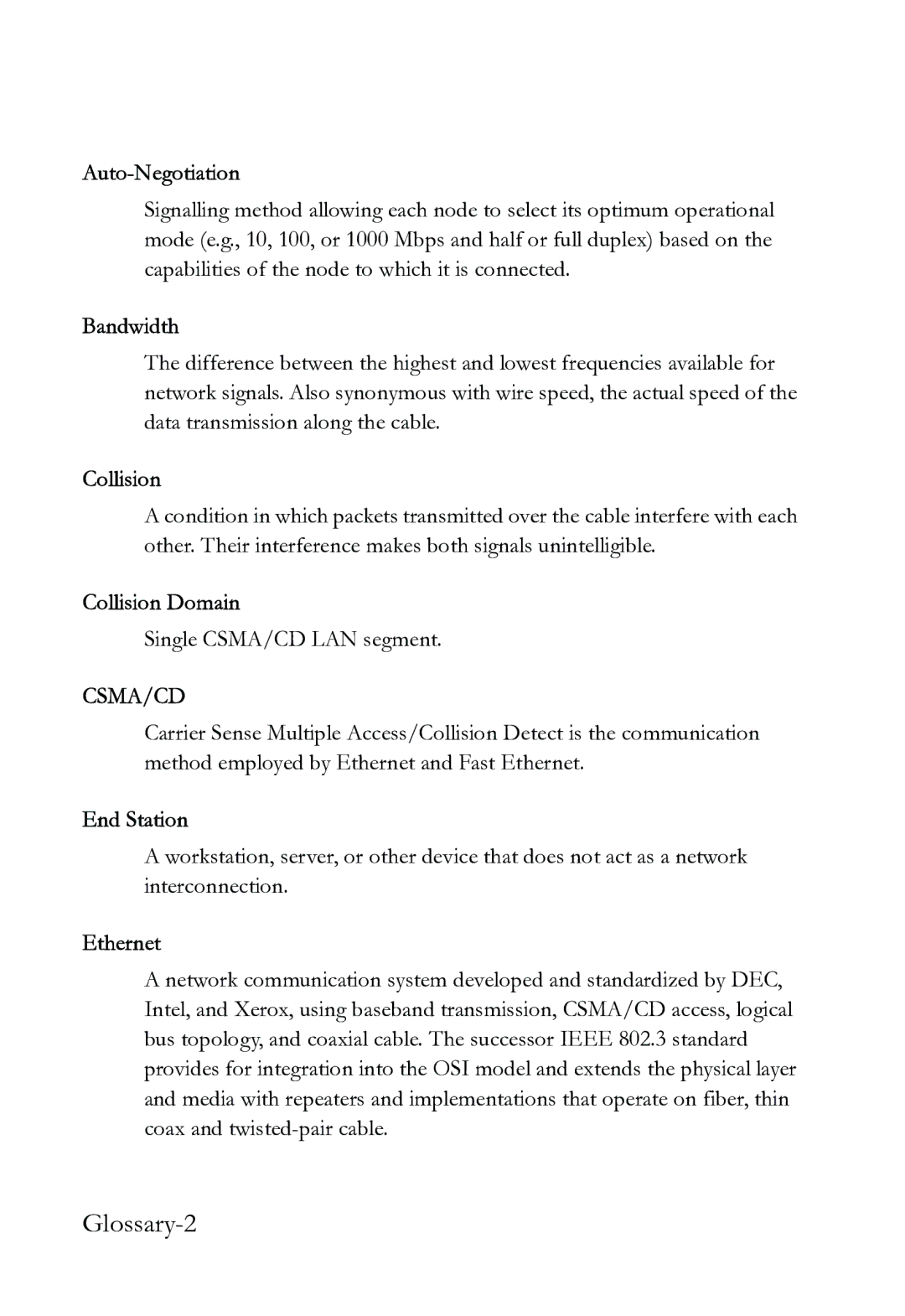Auto-Negotiation
Signalling method allowing each node to select its optimum operational mode (e.g., 10, 100, or 1000 Mbps and half or full duplex) based on the capabilities of the node to which it is connected.
Bandwidth
The difference between the highest and lowest frequencies available for network signals. Also synonymous with wire speed, the actual speed of the data transmission along the cable.
Collision
A condition in which packets transmitted over the cable interfere with each other. Their interference makes both signals unintelligible.
Collision Domain
Single CSMA/CD LAN segment.
CSMA/CD
Carrier Sense Multiple Access/Collision Detect is the communication method employed by Ethernet and Fast Ethernet.
End Station
A workstation, server, or other device that does not act as a network interconnection.
Ethernet
A network communication system developed and standardized by DEC, Intel, and Xerox, using baseband transmission, CSMA/CD access, logical bus topology, and coaxial cable. The successor IEEE 802.3 standard provides for integration into the OSI model and extends the physical layer and media with repeaters and implementations that operate on fiber, thin coax and
